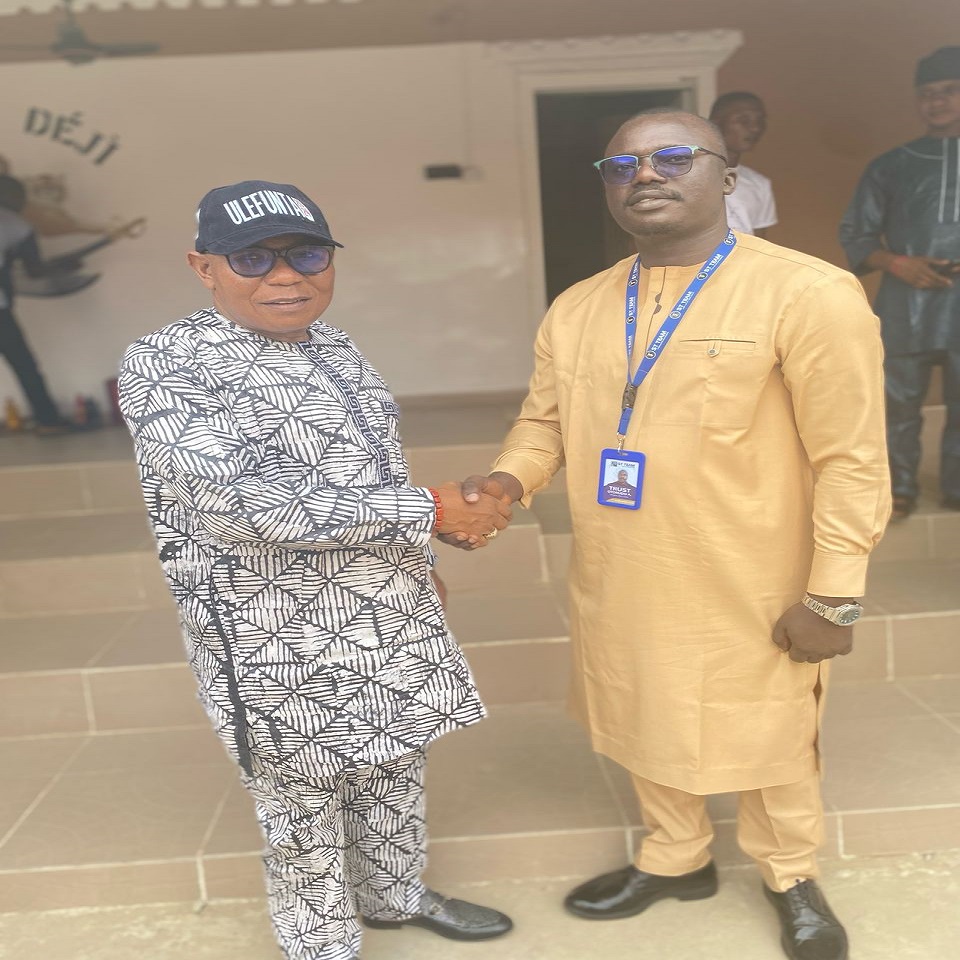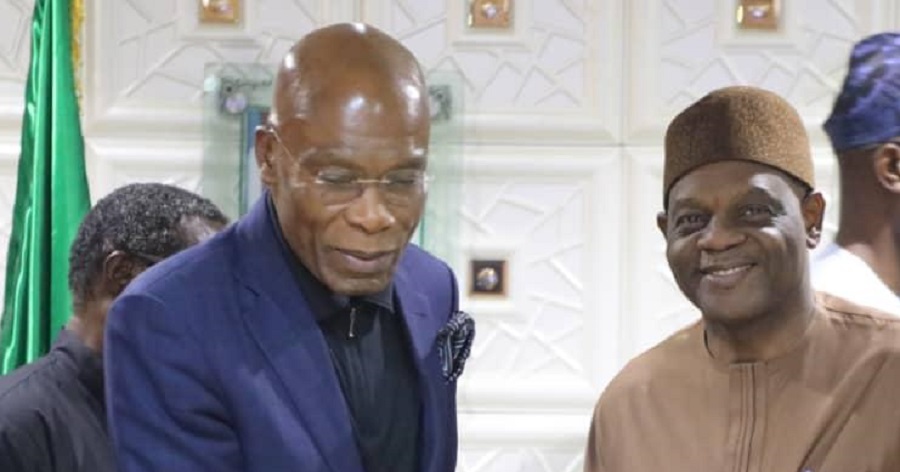News
Smart Cities Initiative Technologies to Gulp $80 Billion in 2018 -IDC

Forecast by International Data Corporation (IDC) has shown that worldwide spending on the technologies that enable Smart Cities initiatives will hit $80 billion in 2018.
In the first release of the Worldwide Semiannual Smart Cities Spending Guide, IDC provides a detailed look at the technology investments associated with a range of Smart Cities priorities and use cases.
As these initiatives gain traction, IDC expects spending to accelerate over the 2016-2021 forecast period, growing to $135 billion in 2021.
Serena Da Rold, program manager in IDC’s Customer Insights & Analysis Group, said “Smart Cities have recently evolved from a collection of discrete flagship projects to a sizeable market opportunity that will drive significant technology investments in 2018 and beyond.
“IDC believes that the strategic priorities we identified will drive digital transformation across cities of all sizes, but our research demonstrates that there can be significant differences in the focus of investments across regions.
“The new spending guide is a powerful tool to help vendors identify where the best opportunities lie for each specific use case now and over the next several years.”
Smart Cities attain digital transformation in an urban ecosystem to meet environmental, financial, and social outcomes.
In IDC’s view, a Smart City begins to be developed when multiple smart initiatives are coordinated to leverage technology investments across an entire city, use common platforms to decrease service time/maintenance costs, share data across systems, and tie IT investments clearly to smart missions.
Smart City programs are enabled by 3rd Platform technologies, and emerging technologies are accelerated in the city ecosystem to deliver innovative solutions in very specific areas.
The strategic priorities that IDC believes will see the most spending in 2018 and throughout the forecast are intelligent transportation, data-driven public safety, and resilient energy and infrastructure.
Intelligent traffic and transit and fixed visual surveillance are the two largest use cases in terms of worldwide spending, followed by smart outdoor lighting and environmental monitoring.
While these use cases attract considerable investments in most geographies, the focus shifts across different regions.
Intelligent traffic and transit will be the top priority in investment terms in the United States, Japan, and Western Europe.
Fixed visual surveillance will be the leading use case in China and the second largest in the United States, while environmental monitoring will be relatively more important in Japan.
Ruthbea Yesner, vice president of IDC Government Insights and Smart Cities programs, said “IDC has a truly innovative approach to size the global Smart City market by identifying 41 key use cases that will have the most impact on local government over the next three years, and sizing and forecasting their growth.”
“This approach provides technology suppliers with a detailed look at the opportunity in cities and offers a view into niche areas as well as broad market solutions.”
On a geographic basis, the United States will be the largest market for Smart City technologies with spending forecast to reach $22 billion in 2018.
China will be a close second with 2018 spending expected to be nearly $21 billion.
The two countries will share a similar growth trajectory with five-year compound annual growth rates (CAGRs) of 19.0% and 19.3%, respectively.
The regions that will see the fastest spending growth are Latin America (28.7% CAGR) and Canada (22.5% CAGR).
News
FG Inaugurates Board of Galaxy Backbone

The Federal Government has inaugurated the new Board of Directors of Galaxy Backbone Limited (GBB). The board’s mandate is to lead Nigeria’s digital transformation in Information and Communication Technology (ICT) infrastructure and services.

It will support Federal Government Ministries, Departments, and Agencies (MDAs) in a fast-changing landscape.
George Akume, Secretary to the Government of the Federation, led the inauguration. He emphasised the government’s commitment to making GBB more agile, responsive, and impactful. The aim is to drive national digital public infrastructure and service delivery. This was according to a statement by Segun Imohiosen, Director of Information and Public Relations.
The board has George Akume as Chairman. Its members include Rabi’a Adamu Waziri from the Petroleum Technology Development Fund (PTDF), Abubakar Abdulqadir Maje from the Joint Stock Association (JSA), Kemi Owonubi from the Ministry of Finance Incorporated (MOFI), and Margareth Ebute from the Ministry of Communications and Digital Economy.
Other members are Ibrahim Adeyanju, Olusegun, Olumbe Akinkugbe, Sanni Ibrahim Mohammed, and Adama Pindar from Galaxy Backbone Limited.
In his acceptance speech, Prof. Ibrahim Adepoju Adeyanju, Managing Director of Galaxy Backbone Limited, assured that the board will focus on sustainability. He said it plans to realign its vision and build a strong foundation for achieving strategic goals.
He also noted that within one year, the agency developed its Integrated Digital Transformation Strategy (IDTS). This strategy will run from 2025 to 2028.
News
ST Team Partners with Deji of Akure to Boost Agriculture and Food Security in Ondo State

Smart Treasure (ST Team) has honored the Deji of Akure, His Royal Highness Ọbá Aladetoyinbo Ogunlade Aladelusi, Odundun II, CFR, with a plaque of recognition for his dedication to the welfare of his subjects.

The presentation was made at the monarch’s palace in Akure by a delegation led by Instructor Luke Mbadugha from the Lagos Operations Center.
The visit was part of ongoing discussions on a partnership aimed at boosting agriculture in Akure, Ondo State.
The initiative, spearheaded by the ST Team, seeks to ensure the availability of farmland for agricultural purposes.
Under the arrangement, the ST Team will provide seedlings and manpower, while a significant portion of the proceeds will be distributed to the indigenes at no cost.
The remaining proceeds will support the administrative operations of the ST Team.
In his response, Ọbá Aladetoyinbo announced the allocation of a parcel of land at Ofosu, along the Ondo-Benin Road, for the project.
He described the initiative as a commendable effort to enhance food security for both the local community and the nation.
The monarch also called for a follow-up meeting to facilitate the assessment of the land for the project’s commencement.
Meanwhile, farming activities are set to resume at Aladodo Isikan in Akure South Local Government Area, another site designated for the agricultural project.
The four-acre land will be used to cultivate crops such as yam, cassava, plantain, and maize. A test run of maize planting began on April 9, 2025, with expectations of harvesting in three months.
Kabiesi Akinwunmi Adekanmbi Obey, the monarch of Olulero Okelero, Onitan Isikan, lauded the ST Team for their commitment to ensuring food availability.
He emphasized the importance of agriculture, stating, “Whoever brings food brings life.”
The ST Team, an investment platform dedicated to reducing poverty in Africa by 30% by 2027, has been actively involved in various Corporate Social Responsibility programs, including this agricultural initiative.
The project underscores their mission to create financial freedom and improve the quality of life for individuals across the continent.
News
Zinox Technologies, TETFUND Collaborate for Tech-Driven Sustainable Future in Tertiary Schools

Zinox Technologies Limited, a leading ICT solutions provider in West Africa, has engaged with the Tertiary Education Trust Fund (TETFUND) in Abuja, marking a significant step towards advancing innovation and sustainable energy solutions within Nigeria’s tertiary education landscape.

Dr. Leo Stan Ekeh, Zinox Chairman (left) and Arc. Sonny Echono, Executive Secretary, TETFUND (right) after the meeting
Under the theme “Advancing Innovation for a Sustainable Future,” the meeting aimed to establish a collaborative framework for technological transformation.
The Zinox delegation was led by Dr. Leo Stan Ekeh, its chairman, and included key members of the company’s executive management team.
On the TETFUND side, Arc. Sonny Echono, executive secretary, was joined by members of his top management team for the high-level discussions.
The highlight of the visit was the establishment of a strategic partnership between Zinox Technologies and TETFUND to provide renewable energy solutions to universities and polytechnics across Nigeria.
Additionally, Mrs. Kelechi Eze-Okonta, managing director, delivered a comprehensive, world-class presentation on the company’s diverse verticals and advanced ICT services, underscoring the need for intentional policy measures to support indigenous technologies for sustainable economic growth.
The TETFUND team expressed their appreciation for Zinox’s contributions to technology awareness, implementation, and adoption in Africa.
Arc. Sonny Echono, executive secretary of TETFUND, conveyed his deep appreciation for the visit by the Zinox team and commended Dr. Leo Stan Ekeh for his unwavering and impactful contributions to Nigeria’s digital transformation, stating that efforts are underway to establish a framework for effective energy solutions in tertiary institutions.
Highlighting Zinox Technologies’ expertise and proven track record, Arc. Echono expressed optimism about partnering with the company to develop scalable and efficient power solutions for academic institutions.
While both organizations remain committed to implementing innovative initiatives that enhance institutional capacity across the nation’s higher education sector, the visit marks a significant milestone in establishing a strategic partnership to equip Nigeria’s tertiary institutions with the essential technological infrastructure for a sustainable, digitally-driven future.

 E-Financial3 days ago
E-Financial3 days agoAfDB Mobilizes $2.2Bn to Support Nigeria’s Agriculture

 News3 days ago
News3 days agoMTN Pens Moving Tribute to Pascal Gabriel Dozie, Former Chairman

 General News3 days ago
General News3 days agoNIPOST Threatens Courier, Logistics Service Providers

 E-Business3 days ago
E-Business3 days agoNatasha: TMG Demands Probe of Alleged Data Breach in Failed Recall

 E-Business3 days ago
E-Business3 days agoCJN Warns Judicial Officials against Data Breaches, Cyber Attacks

 Broadcasting2 days ago
Broadcasting2 days agoStarlink, DStv, Others Pay “Peanuts” to Operate in Nigeria- Minister

 Telecom3 days ago
Telecom3 days agoNCC Issues 90 Days Deadline to Telcos to Resolve Subscribers’ Unclaimed Airtime

 News3 days ago
News3 days agoNIGCOMSAT, Jigawa State Empower 150 Youths on Satellite New Innovations



























